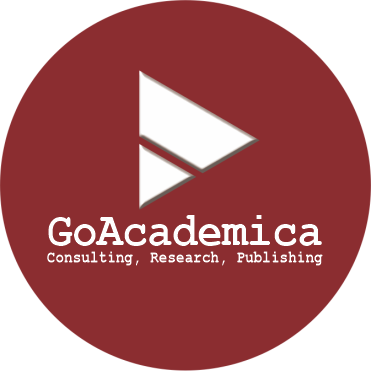PERFEKSIONISME DAN KUALITAS TIDUR: STUDI KASUS MAKE UP ARTIST (MUA) DI JAKARTA
Abstract
Profesi Make Up Artist membutuhkan ketelitian yang seringkali mendorong sifat perfeksionis. Perfeksionisme dapat berdampak positif dalam meningkatkan keterampilan dan reputasi MUA, namun juga berpotensi menyebabkan stres dan gangguan tidur. Penelitian ini bertujuan untuk mengetahui hubungan antara perfeksionisme dan kualitas tidur para Make Up Artist (MUA) di Kota Jakarta. Penelitian ini menggunakan metode kuantitatif dengan membagikan kuesioner kepada partisipan yang memenuhi kriteria. Metode penelitian yang digunakan adalah kuantitatif dengan teknik snowball sampling. Sebanyak 237 partisipan Make Up Artist (MUA) bersedia mengisi kuesioner. Skala Multidimensional Perfectionism Scale dari Hewitt dan Flett digunakan untuk mengukur perfeksionisme, sedangkan Pittsburgh Sleep Quality Index (PSQI) digunakan untuk mengukur kualitas tidur. Analisis Pearson Correlation menghasilkan r = 0.773 dan p 0.000 < 0.05. Hasil menunjukkan hubungan positif dan signifikan antara perfeksionisme dan kualitas tidur. Dengan kata lain, semakin tinggi perfeksionisme, semakin tinggi kualitas tidur. Hasil penelitian diharapkan dapat memberikan kontribusi dalam bidang psikologi klinis dan memberikan manfaat bagi Make up artist (MUA) dalam mengelola perfeksionisme dan meningkatkan kualitas tidur.
References
Asmadi. (2010). Teknik prosedural keperawatan: Konsep dan aplikasi kebutuhan dasar klien.
Jakarta: Salemba Medika.
Assar, A., Diaz, A., Lee, T., & Fletcher, K. (2024). Multidimensional Perfectionism and Sleep: The Role of Self-Compassion. Sleep, 47, A51.
Blais, M., & Freeman, J. (2019). The role of the make-up artist in the entertainment industry. Journal of Creative Arts Studies, 12(2), 45-59.
Blatt, S. J. (1995). The destructiveness of perfectionism: Implications for the treatment of depression. American Psychologist, 50(12), 1003-1020.
Brand, S., & Kirov, R. (2011). Sleep and its importance in adolescence and in common adolescent somatic and psychiatric conditions. International Journal of General Medicine, 4, 425–442.
Burns, D. D. (1980). The perfectionist's script for self-defeat. Psychology Today, 14(6), 34-52.
Buysse, D. J., Reynolds, C. F., Monk, T. H., Berman, S. R., & Kupfer, D. J. (1989). The Pittsburgh sleep quality index: A new instrument for psychiatric practice and research. Psychiatry Research, 28(2), 193-213.
Chang, E. C. (1998). Cultural differences, perfectionism, and suicide ideation: A study of Asian Americans and Caucasian Americans. Cognitive Therapy and Research, 22(3), 237-254.
Desianti, M. (2018). Mila Dewi, makeup artist dengan hasil makeup soft, manglingi dan rapi.
Elbadawi, M. H., Mubasher, A. A., Abdulgalil, A. A., Fadul, M. H., Elameen, N. N. E., Elamin, R. M. M., Mohamed, W. A., & Alsaid, A. M. T. (2024). The relationship between perfectionism and quality of sleep: A cross-sectional study among Sudanese medical students. Faculty of Medicine, University of Khartoum.
Frost, R. O., Marten, P., Lahart, C., & Rosenblate, R. (1990). The dimensions of perfectionism. Cognitive Therapy and Research, 14(5), 449-468.
Fry, P. S., & Debats, D. L. (2009). Perfectionism and the five-factor personality traits as predictors of mortality in older adults. Journal of Health Psychology, 14(4), 513- 524.
Hafner, M., Stepanek, M., Taylor, J., Troxel, W. M., & Van Stolk, C. (2017). Why sleep matters—the economic costs of insufficient sleep: a cross-country comparative analysis. RAND Health Quarterly, 6(3), 11.
Hamachek, D. E. (1978). Psychodynamics of normal and neurotic perfectionism.
Psychology: A Journal of Human Behavior, 15(1), 27-33.
Harvey, A. G., Soehner, A. M., Kaplan, K. A., Hein, K., & Buysse, D. J. (2017). The perils of perfectionism: Perfectionistic thinking and vulnerability to insomnia. Journal of Anxiety Disorders, 47, 56-63.
Hellmann, E. (2016). Keeping up appearances: Perfectionism and perfectionistic self- presentation on social media.
Hewitt, P. L., & Flett, G. L. (1991). Perfectionism in the self and social contexts: Conceptualization, assessment, and association with psychopathology. Journal of Personality and Social Psychology, 60(3), 456-470.
Hidayat, A. A. (2009). Pengantar kebutuhan dasar manusia: Aplikasi konsep dan proses keperawatan. Jakarta: Salemba Medika.
Hill, R. W., McIntire, K., & Bacharach, V. R. (1997). Perfectionism and the big five factors. Journal of Social Behavior and Personality, 12(1), 257-270.
Horney, K. (1950). Neurosis and human growth: The struggle toward self-realization. W. W. Norton & Company.
Iskandar, Y. Z., Nurhayati, Y., Linggawati, Yuliawati, Y., Susilah, I., & Nurnelah, S. (2023). Pelatihan kursus make up artist (MUA) sebagai peluang bisnis inovatif bagi ibu-ibu rumah tangga Kecamatan Cilamaya Kulon. Jurnal Bakti Tahsinia (JBT), 1(3), 329-339.
Iskandar. (2018). Mudahnya Panggil Makeup Artist Profesional Lewat Aplikasi Ini.
Kamus Besar Bahasa Indonesia. (n.d.). Seniman. Badan Pengembangan dan Pembinaan Bahasa, Kementerian Pendidikan dan Kebudayaan Republik Indonesia.
Lin, R.-M., Xie, S.-S., Yan, Y.-W., Chen, Y.-H., & Yan, W.-J. (2017). Perfectionism and adolescent sleep quality: The mediating role of repetitive negative thinking. Journal of Health Psychology, 1–11. https://doi.org/10.1177/1359105317693914
Maslach, C., & Leiter, M. P. (2016). Understanding the burnout experience: Recent research and its implications for psychiatry.
Medic, G., Wille, M., & Hemels, M. E. H. (2017). Short- and long-term health consequences of sleep disruption. Nature and Science of Sleep, 9, 151-161.
Nathania, V. (2019) Belajar Makeup Secara Otodidak, Begini Awal Mula Karier Dhirman Putra.
Nifa, A. A., Supiani, T., & Atmanto, D. (2021). Persepsi konsumen terhadap kualitas pelayanan make up artist pria. Program Studi Pendidikan Tata Rias, Fakultas Teknik, Universitas Negeri Jakarta.
Papalia, D. E., Olds, S. W., & Feldman, R. D. (2009). Human Development (11th ed.).
McGraw-Hill.
Parker, W. D. (1997). An empirical typology of perfectionism in academically talented children. American Educational Research Journal, 34(3), 545-562.
Pemi, S. (2015). Pengaruh usia terhadap kebutuhan tidur dan kualitas tidur pada lansia. Jurnal Keperawatan, 7(1), 15-22.
Ramadhani, E., & Kesuma, K. A. (2020). Konsep diri pria make up artist. Studi kualitatif konsep diri pria make up artist di Kota Medan.
Shafran, R., Cooper, Z., & Fairburn, C. G. (2002). Clinical perfectionism: A cognitive- behavioural analysis. Behaviour Research and Therapy, 40(7), 773-791.
Sherry, S. B., Mackinnon, S. P., & Gautreau, C. M. (2020). Understanding the relationship between perfectionism and sleep quality. Personality and Individual Differences, 153, 109-113.
Sohn, E. (2024). Perfectionism and the high-stakes culture of success: The hidden toll on kids and parents. Vol. 55, No. 7, 54.
Stoeber, J., & Otto, K. (2006). Positive conceptions of perfectionism: Approaches, evidence, challenges. Personality and Social Psychology Review, 10(4), 295-319.
Stricker, J., Kröger, L., Johann, A. F., Kuskens, A., Gieselmann, A., & Pietrowsky, R. (2022). Multidimensional perfectionism and poor sleep: A meta-analysis of bivariate associations. Sleep Health, Journal of the National Sleep Foundation, 1–8.
Stumpf, H., & Parker, W. D. (2000). A hierarchical structural analysis of perfectionism and its relation to other personality characteristics. Personality and Individual Differences, 28(5), 837-852.
Sumiyati (2024). Kisah Inspiratif Nur Azizah, Cuma Lulusan SMP Kini Sukses Jadi MUA
Tutik. (2022). MUA sebagai tren karir anak muda dalam mengurangi pengangguran di Kecamatan Belik. Sekolah Tinggi Ilmu Ekonomi Pariwisata Indonesia.
Ulung, G. (2010). Makeup artist. Gagas Ulung.
Wahyu, A. (2024) Make Up Artist: Kisaran Gaji dan Skill yang Penting Dimiliki Walker, M. P. (2009). The role of sleep in cognition and emotion. Annals of the New
York Academy of Sciences, 1156, 168-197.
Zaky, R., Fitria, A., & Ramadhan, F. (2020). Hubungan kualitas tidur dengan tingkat stres pada mahasiswa. Jurnal Psikologi, 15(1), 50-58.
Zhaoyang, H., Feng, C., Mei, F., Jingjing, L., & Jiyang, P. (2022). Negative perfectionism and sleep quality in Chinese international students under COVID-19 epidemic: A moderated mediation. Journal of Psychology and Psychotherapy, 46(5), 570–581



















